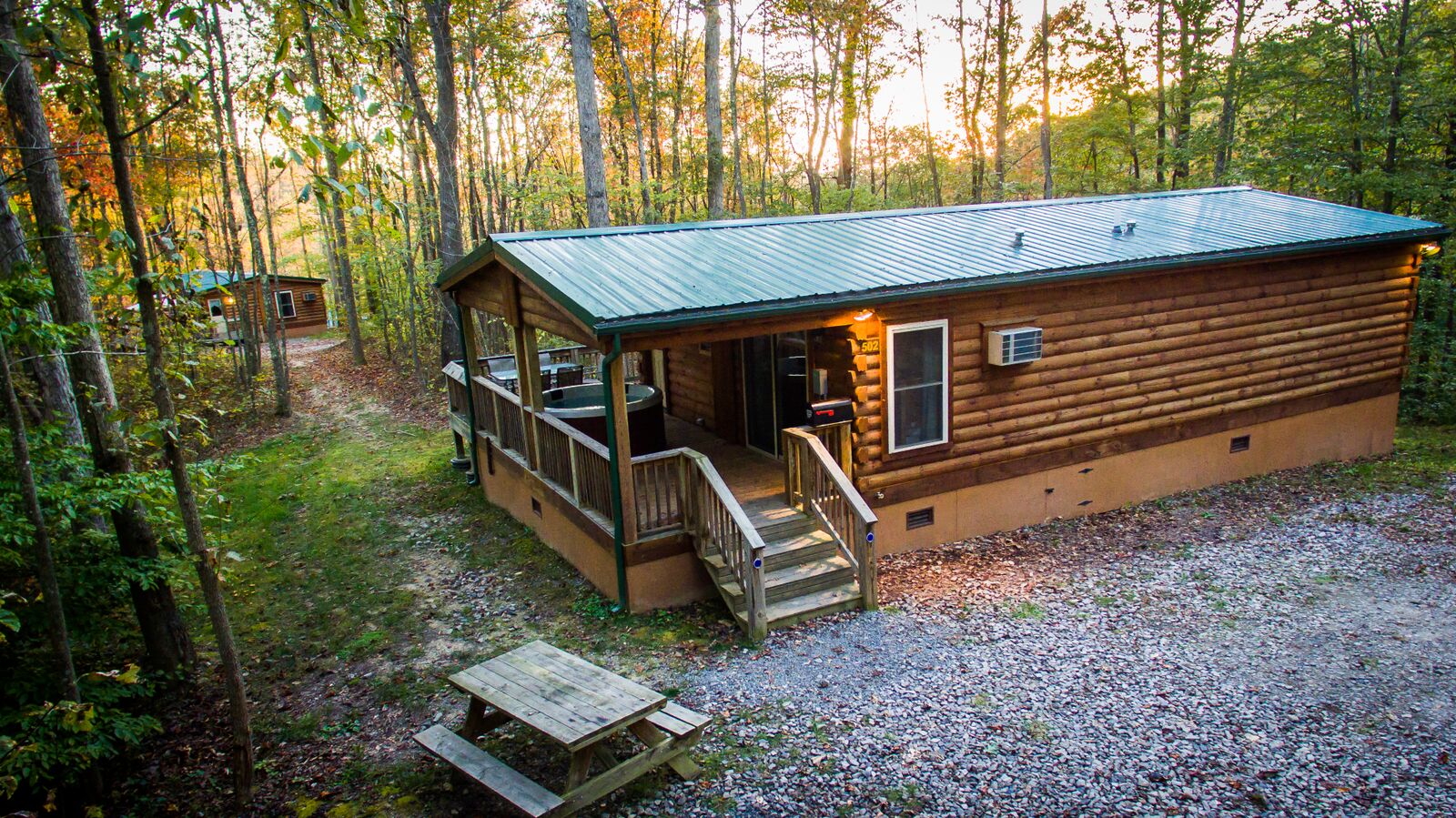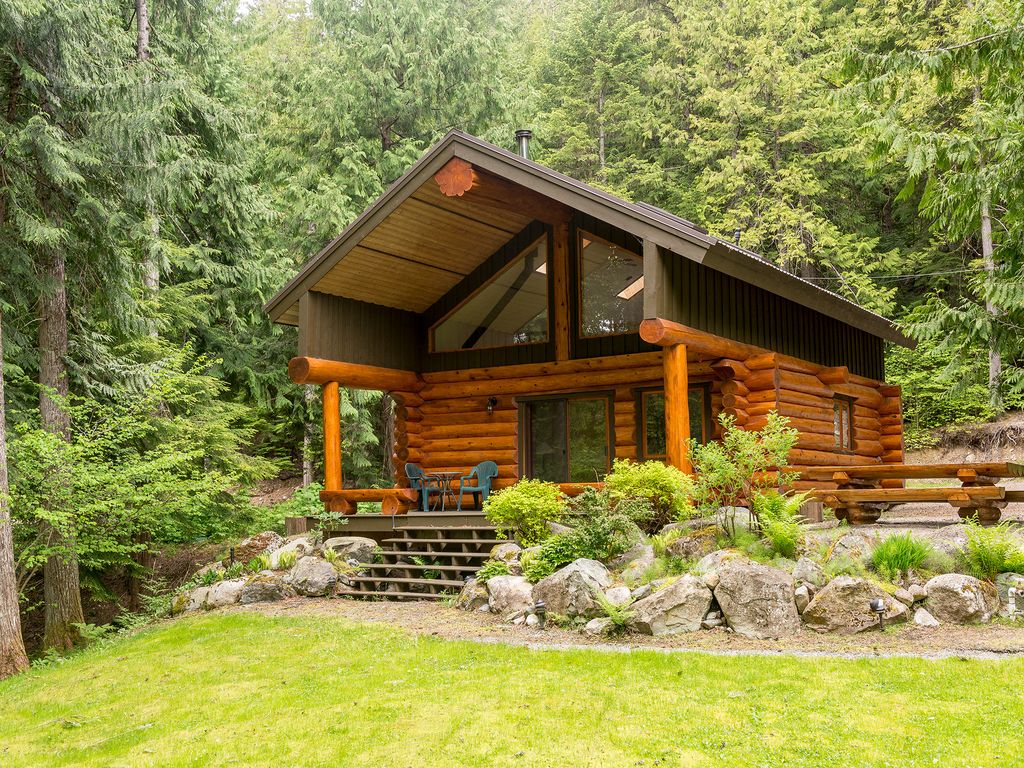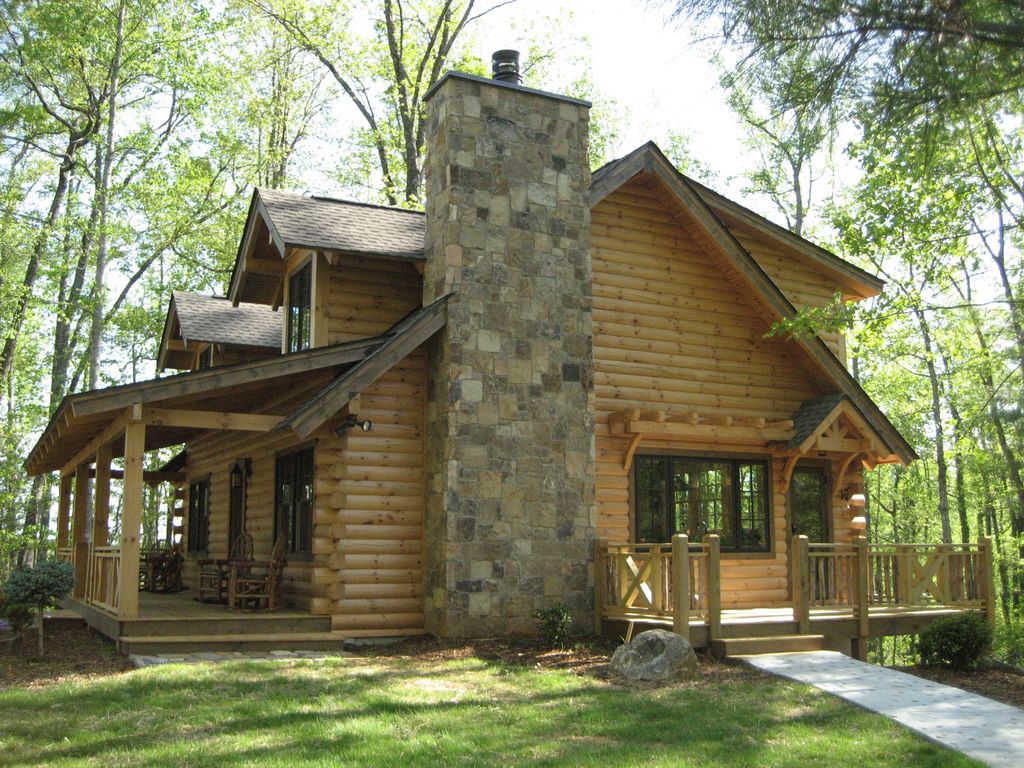
noun
- a small house or cottage, usually of simple design and construction: He was born in a cabin built of rough logs.
- an enclosed space for more or less temporary occupancy, as the living quarters in a trailer or the passenger space in a cable car.
- the enclosed space for the pilot, cargo, or especially passengers in an air or space vehicle.
- an apartment or room in a ship, as for passengers.
- cabin class.
- (in a naval vessel) living accommodations for officers.
adverb
- in cabin-class accommodations or by cabin-class conveyance: to travel cabin.
verb (used without object)
- to live in a cabin: They cabin in the woods on holidays.
verb (used with object)
- to confine; enclose tightly; cramp.
noun
- a small simple dwelling; hut
- a simple house providing accommodation for travellers or holiday-makers at a motel or holiday camp
- a room used as an office or living quarters in a ship
- a covered compartment used for shelter or living quarters in a small boat
- (in a warship) the compartment or room reserved for the commanding officer
- British another name for signal box
-
- the enclosed part of a light aircraft in which the pilot and passengers sit
- the part of an airliner in which the passengers are carried
- the section of an aircraft used for cargo
verb
- to confine in a small space
mid-14c., from Old French cabane “hut, cabin,” from Old Provençal cabana, from Late Latin capanna “hut” (source of Spanish cabana, Italian capanna), of doubtful origin. French cabine (18c.), Italian cabino are English loan-words. Meaning “room or partition of a vessel” is from late 14c. Cabin fever first recorded by 1918 in the “need to get out and about” sense; earlier (1820s) it was a term for typhus.
 Liberal Dictionary English Dictionary
Liberal Dictionary English Dictionary


